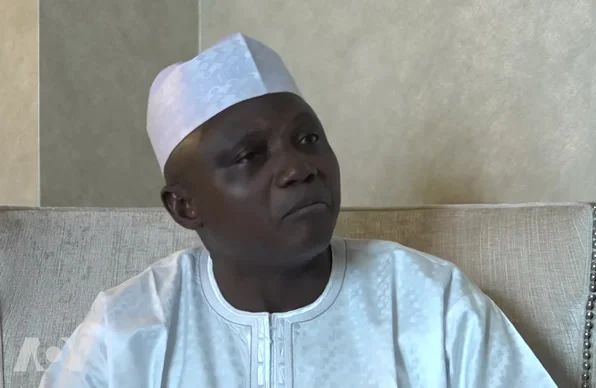• Says flood response not solely FG’s duty
• Knocks politicians blaming FG for poor flood response
As the rainy season begins in earnest, the Presidency, on Tuesday, challenged states to “face their duties of managing the flooding within their jurisdictions,” explaining that the Federal Government was not mandated to manage such incidents in all 36 states.
This was as it said those calling on the federal government to respond to every outbreak of natural disaster did not display an understanding of Nigerian law.
According to a statement signed by the Senior Special Assistant to the President on Media and Publicity, Garba Shehu, the Presidency argued that the local, state and federal governments have been dealt a sizeable monthly budget sufficient enough to deal with state-level and national-level natural emergencies.
The statement is titled ‘Flooding in several Nigerian states and the triple response structure.’
The Presidency stated that the structure of the response mechanism on natural disaster mandated the central government to directly address national-level emergencies and that local government councils and the states were the first responders in all situations.
Therefore, it said “Calls for the federal government to respond to all outbreaks of natural disaster do not just display an understanding of Nigerian law.
“While not a national-level emergency, the ongoing flooding is an emergency nevertheless. Nigerian lives and property are at stake.
“We call on governors of those states that have swung into action and engaged the necessary gear to continue with their efforts, and those that have not, to immediately face their duties of managing the flooding within their jurisdictions – that is, the job that the President, Governors and council Chairmen have been elected to do.”
It explained that the local, state and federal governments have a sizeable budget at their disposal, allocated monthly for dealing with state-level natural emergencies, as well as federal agencies.
“It is not clear why some of the state governments in question are not already drawing upon those funds to tackle the current emergency, and the general population is misguidedly calling on the federal government to intervene in all situations,” the Presidency queried.
It added, “If those monies are, for whatever reason, no longer available, the affected states and local councils must immediately contact the relevant authorities to explain what has happened with those funds.”
Explaining the revenue allocation formula, the Presidency noted that 2.32 per cent of derivation funds is allocated for ecology and disaster management.
“Of this amount, the 36 states and the FCT get 0.72 per cent, the 774 local governments get 0.6 per cent, adding to 1.32 per cent, leaving a balance of one per cent to the government of the federation.
“By the law of land, NEMA takes 20 per cent of the amount allocated to the Federal Government. The North-East Development Commission collects 10 per cent, the National Agricultural Land Development Authority, 10 per cent, and the National Agency for the Great Green Wall, 0.5 per cent, leaving 0.55 of the one per cent to the government at the centre for ecological protection and disaster management,” the statement read.
Shehu extended the assurances of the President, Major General Muhammadu Buhari (retd.), who, he said, was deeply concerned over the communities in towns and villages, many of whom had lost relatives, suffered extensive damage to property, and endured the destruction of crops and farm lands.
According to him, “President Muhammadu Buhari assures that the situation is under continuous monitoring and the government at the centre will keep sending teams to assess the situation with a view to rendering all necessary help.
“While expressing his concerns over the hardships being faced by people due to this natural calamity, the President noted that the National Emergency Management Agency had written to each of the 36 states of the federation through the states’ respective Governors advising on the appropriate action to take in view of the gloomy forecasts of the rains this year.”
The Presidency also applauded the few states that working to avert disasters and managing same where they occur.
It extended President Buhari’s assurances that “the federal government will continue to work closely with the state governments to provide all possible assistance to overcome this challenge, the President expects at the same time it must be seen as a shared responsibility.”
“The response to emergencies must stand on the three-legged structure. Instead of making headline grabbing calls, politicians should take the trouble to find out from the Ministries and state governments what steps are being taken in the face of these challenges,” Shehu added.











